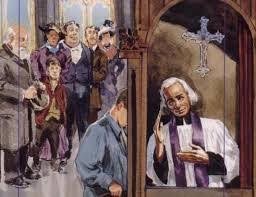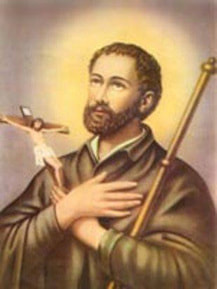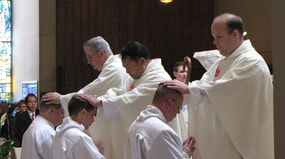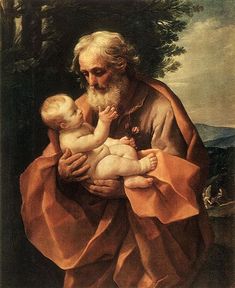 Every interaction, every conversation, each and every dive into our relational natures as human beings begins with the willing openness to listen. Listening begins with a simple opening, a knock on the door of our self-focus that lets us know that someone else is here, present before us with a unique existence, one that should be experienced and embraced. Listening happens in almost everything we do in our daily lives, whether we are speaking with others, learning instructions, praying, or even sitting alone in the quiet of an empty house. There is always something to hear, always something to experience. To listen is to see the beauty and worth in another and embrace this by joining another in his or her own life’s journey, wherever they may be, in whatever they are going through. I often say that listening is an art. We are all great artisans of speech, one way or another. Whether outspoken and personable, or soft-spoken and shy, we all have an inner preacher within us that constantly narrates our thoughts, opinions, and daily lives. To speak is in our nature, and to listen is also a part of who we are. Speaking, however, often seems easier than listening. Children, constantly having to be reminded to give each person his turn to speak, exemplify this. Why is it hard to listen? I think the life of Saint John Marie Vianney, whose feast we celebrate today, can show us some answers. Looking into his life, one can see just how important and powerful the art of listening is for us all. Listening is something that can be appreciated in others and within ourselves in an almost artistic way, such as when we read the great sonnets of Shakespeare, or admire Monet’s Water Lilies. Listening has its own beauty within it, as all things do. It is in itself a beautiful thing. Saint John Vianney, I believe, knew the power that listening wields. As a priest in the farmlands of France, traveling around to spiritually devastated towns, he would plop himself down in a confessional and just sit there, waiting. In time, townspeople started coming and speaking to him. He heard confessions for long lengths of time each day, listening to the needs of the people of France. Slowly and surely, each town he visited began beaming with a light and a warmth that didn't exist before. Besides hearing the townspeople’s confessions, John Vianney validated and embraced their lives in his own, welcoming all and listening with an open heart. He embraced fully the priesthood as a way to listen to others, to join into the community of all, to embrace and see the worth in others and to let others know that Christ sees their worth as well. He did this through devout prayer to God and a humble heart to listen to God’s plan for him. It is by this profound listening that John Vianney became the well-known Patron of Priests that he is today. John Vianney teaches us that listening can save lives. Regardless of how small a conversation may be, to listen is to embrace another, to shine forth that spirit of community that builds the foundation for the One, Holy, Catholic, and Apostolic Church. Each and every person has something to say and is worth the time. Vianney also teaches us to listen to God, to listen to the silence we so often get in response to our prayers that the answer is there, in our life. God listens to us always, in everything we do; all we need to do is learn to embrace ourselves the way God embraces us when He listens to our lives. As we continue on our journeys, I pray that the art of listening may inspire and shine beautifully in our interactions with others each day and in our prayers to the Almighty Father. William Clemens is a Undergraduate Student of Theology & Religious Studies at The Catholic University of America in Washington, D.C.
2 Comments
 This past Sunday, the First Sunday of Advent, my home parish of St. Francis Xavier marked a big milestone in its history – we have just concluded much needed renovations to the church building. The event was commemorated with a special Mass celebrated by our archbishop, Cardinal Sean O’Malley, along with many concelebrating priests and assisting deacons who have been assigned to the parish over the years. It was also my first “official” trip home to the parish since entering seminary this past summer. This was a happy and exciting day for the entire parish and was a great way to usher in this season of Advent, this season of hopeful anticipation of the coming of Jesus Christ. These renovations to the parish have been in progress for many years, ever since I was a little kid serving Mass. One might say that the community has endured a long season of Advent – a long time of patiently awaiting this rejuvenation of our sacred space, our spiritual home. And the patience definitely paid off! We now have a more beautiful place to pray, to celebrate the sacraments, and to gather as a parish community to worship God. This visit home moved me to consider how St. Francis Xavier, the namesake and patron of the parish, would have approached such an extended season of Advent. Francis Xavier, the great Jesuit saint, brought the message of Christ to the people of Asia through his devoted missionary endeavors. Being sent on mission was not the way Francis had envisioned his priesthood, for he was preparing to dedicate his life to the intellectual pursuits of the faith and the fostering of the newly formed Society of Jesus. But, Francis Xavier was called to become a missionary priest and, obediently, he went. Francis most certainly had many gifts and received many graces in order to accomplish his evangelizing activity in a far corner of the world with few companions. Of course, he had great faith in God and in the Church. Francis Xavier would have been a man with patience, endurance, and courage, for these are necessary to persevere through the difficult trials that come with priesthood and religious life, evangelization, and mission in foreign countries. He must have had great trust in the Lord and trust that his efforts to bring Christ to the people of Asia would indeed bear much fruit. Francis Xavier must have been a joyful man, one who attracted others to become followers of Jesus Christ. Most importantly, Francis Xavier must have been a filled with hope – hope for all of those people he evangelized, hope in the Society of Jesus, and hope in the Christian message of salvation. This, it seems, is the greatest virtue that we can learn from Francis Xavier as we enter into this Advent season – hope. The sense of hope that undoubtedly carried Francis Xavier through his missions is similar to what helped the parishioners at St. Francis Xavier Church endure the long journey toward a renovation of their sacred space – the hope that our efforts and sacrifices may lead others to find Christ, and that one day we might all be united with him in Heaven. Though we are not necessarily called to be great missionary saints, we can certainly evangelize within our families and communities as we gather to celebrate the birth of the Lord. May St. Francis Xavier be a guide for us this Advent, as we try to “renovate” our lives to become more joyful, courageous, and hopeful witnesses to the wonderful Gospel message with the hope of bringing others to Christ. Joe Hubbard is a Collaborator with the Catholic Apostolate Center and a Seminarian for the Archdiocese of Boston.
“So have you thought about becoming a priest?” As an altar server in my parish, many a priest (and well-meaning parishioner) would ask me this question as we were preparing for the celebration of Holy Mass. Even though this would stem from a casual conversation about my life, I was always somewhat taken aback by the harmless question put to me in that sacristy before I would automatically answer back to the smiling celebrant, “If God wills it!” To be honest, however, I felt lost. Some days I would think that being a priest was my calling, others that having a family was. In my life I would see hints of my calling everywhere— a Bible verse (i.e. Matthew 9:37) would tell me to be a priest while a smiling baby (and the occasional girl) would inspire me to be a dad. These mixed signals distressed me: despite my prayers, it seemed as if I would never get a firm answer to the life-changing question of what God wanted of me.
While I consider Saint Joseph my go-to-man for guidance on paternity, I look to Saint John Vianney, the patron of priests, for all matters concerning the Roman collar. The so-called “Curé of Ars” is an especially good model of strong will for both those preparing for the priesthood and anyone discerning God’s calling. From his youth he was filled with a great desire to “win souls for the good of God” by being a priest, though the turmoil of the French Revolution, having difficulty learning and memorizing in school, his father’s reluctance to not having him assist in the fields, being drafted into the military, suffering sickness, living amidst the government’s anti-Catholic persecution, and even being dismissed from the seminary in Lyon all stood in between the French man and his calling. At the age of 29, however, John Vianney was finally ordained, and he began to tend to the priestly and pastoral work in his parish. The same perseverance that enabled him to become a priest was now applied to the preparation of sermons, reflection on the works of spiritual writers and theologians, devotion to the Blessed Virgin Mary and Saint Philomena, self-mortification, and ministering through Eucharistic Adoration and the sacrament of Reconciliation. What an example of courage for those who today experience the grace of being called to the priesthood! With my own discernment process ongoing, I must remember that, despite the mixed signals I’m receiving as to what I am being called for, my vocation is not a problem to be solved! Rather, it is a personal call to holiness, one of joy and love. To worry excessively over this is to not allow God to work freely in my life nor trust that He will never lead me down the wrong path! Of course, the priesthood is not for everyone— fervent discernment will help determine if God is in fact calling a man to be consecrated in this way. Entering into a seminary is itself not a final decision but the best way to discover the authenticity of one’s vocation. Of course, the discernment process can also be started by simply conversing with a priest! In the Catholic Church, the role of the priest is vital. Tasked with the spiritual welfare of his flock, a priest is responsible for, but not limited to, celebrating daily Mass, administering the sacraments, offering counsel and comfort, leading retreats, catechizing, volunteering, and helping to run the parish community. He must be sensitive to the needs of his assignment while remaining obedient to the Church hierarchy. In addition, being a priest requires a 24/7 commitment with very little financial compensation;however, the reward for doing so— which is similarly offered to us all— is infinitely more fulfilling than a paycheck. In short, the priest is the mediator between God and His people. Just as Christ was sent by the Father, He in turn sent the Apostles into the world, so that “through them and their successors, the Bishops, He might continue to exercise His office of Teacher, Priest, and Shepherd… they are called to the service of the people of God” (Pope Francis’ homily given on Good Shepherd Sunday 2013, c.f. John 20:21-23). John Vianney similarly recognized the significant of the priesthood: “Oh, how great is a priest! The priest will not understand the greatness of his office till he is in Heaven. If he understood it on earth, he would die, not of fear, but of love.” Through the priest, we can glimpse the immense Love and grandeur of God: it is through him that Christ forgives our sins and through him that we receive the Body and Blood of our Lord. As I continue to discern my calling, I am reminded of all the priests God has placed in my life. These brave, holy, good, and faithful men of God have inspired me greatly with their joy, goodwill, patience, humility, and generosity in passing on the teachings of the Faith and caring for others. Like their patron, they trust in God to help them persevere through times of hardship and distress. They have readily answered God’s call of “Whom shall I send?” (Isaiah 6:8) and dedicated themselves to serving us through the example of Christ. They continuously pray for us; we must do the same for them! We are here today thanks to them. Thomas Wong is an undergraduate at The Catholic University of America in Washington, D.C. St. Joseph is known as the Shadow of the Eternal Father, the Perpetual Adorer, the Patron of the Universal Church, the Patron of the Suffering and Dying, the True Foster Father of Jesus Christ, and Most Chaste Spouse of the Ever-Virgin Mary. He shows how a person must rely on the Father’s providence, trust the boldness of the Holy Spirit, and cherish the Incarnate Jesus, all while staying close to the Virgin Mary. St. Joseph is a model of faith and in a unique way he upholds the dignity of all vocations.
Joseph survives and thrives as a person of faith by abandoning his life and family completely to God. The Devil, Herod, and everyday difficulties, like not being able to find a place for his wife to give birth, threaten Joseph’s most precise gifts. A faithful person humbly resigns what they care about most to the Giver of All Gifts only to receive back what is best blessed and renewed. Joseph protects his family through surrendering them to God. How wonderful St. Joseph’s prayers must have been. The way he took his fears and insecurities to God to receive true strength must have been so beautiful. There are many ways that we know that St. Joseph’s faith was profound. The Virgin Mary knows for sure that she has never been with a man, but Joseph does not. St. Joseph trusted in the words of an angel in a dream. The angel said, “Joseph, son of David, do not be afraid to take Mary home as your wife, because what is conceived in her is from the Holy Spirit” (Mt. 1:20). Catholic theology of the Trinity had not been developed yet leaving Joseph not knowing with any sort of clarity who this “Holy Spirit” was that had impregnated his fiancée. St. Joseph demonstrates that his faith is not the kind that limits God by being attached to personal plans and expectations, but is one that allows God to act boldly. His faith is fulfilled by being lived out; he did take Mary as his bride, he did raise Jesus as his son, he did go wherever the Lord commanded him. Joseph fled to Egypt when Jesus’ life was being threatened and he returned home when he was told, doing everything in accordance with God’s will and timing. The obedient Joseph, as the Perpetual Adorer of the Christ-child can also help us grow in intimacy with Christ. Have we ever realized that the baby Jesus was most likely birthed into the callused hands of his carpenter foster-father? St. Joseph knew Jesus in a radically unique and intimate way. Joseph was able to adore the Eucharist while it was still breathing. We can relate to Joseph in the struggles that he faced and the fact that he was not spared from original sin. He was broken, flawed, sinful, fearful, and even being tempted. Joseph, as most chaste spouse, did not reduce Mary to an object of pleasure but he honored her as a whole person. We can imagine that Joseph embraced his call to chastity not begrudgingly but with great joy. Their intimacy honors the glory of creation by neither of them trying to dominate or manipulate the other for personal gain. How immaculate their interactions must have been! St. Joseph and Mary model for us a pure intimacy rooted in trust, commitment, and the will of God. With these considerations in mind we see St. Joseph as an inspiration for all people because he was called to marriage, parenthood, and celibacy. Whether we are called to marriage, religious life, priesthood, or the single-life we should entrust ourselves to St. Joseph and know that he understands the burdens that we carry. As a good father he will teach us to trust God completely and to allow the Holy Spirit to move in dramatic and unexpected ways. With Joseph as a model of faith we will honor the dignity of all people, love Mary, and intimately adore the Incarnate Christ. Daniel Hoover works at St. Mary’s Parish in the Diocese of Wilminigton, DE as a Lay Ecclesial Minister. A few weeks ago my first niece was born. Needless to say, the pride of being an aunt flooded me and the joy of this news was shared with every person I spoke to. In these conversations I had one of those “you know you are a Catholic when” moments. The question that persistently followed “What is her name?” was “When is she going to be baptized?” This got me to think, “What’s the big deal?” And then the Holy Spirit hit me with, “PRIEST, PROPHET and KING!”
In infant baptism, we are not only cleansed of original sin and saved from “eternal damnation.” We are chosen and claimed. When immersed into the water with the Trinitarian rite – Father, Son, and Holy Spirit – baptism is signifying and actually bringing about “death to sin and entry into the life of the Most Holy Trinity through configuration to the Paschal mystery of Christ” (CCC 1239). But our rite doesn’t end there. As. Fr. Kevin Nadolski, OSFS, puts it, “we are then slathered in Jesus gel and given a crown of royalty.” In being anointed with Sacred Chrism, we are chosen by God, claimed by Christ and through the Holy Spirit are named priest, prophet and king (CCC 1241). St. Francis de Sales writes, “Be who you are, and be that well.” We, as baptized, are priests. We are prophets. We are royalty. The call as baptized disciples is to live these attributes and to live them well. Lumen Gentium explains that by our priestly duty we are called to “consecrate the world itself to God” (LG 34) through our works, prayers, activities, and daily responsibilities. It explains that as prophets we are to announce Jesus Christ by life and word and be witnesses to “life springing forth from faith (LG 35).” And lastly, that as His disciples we are named as His kings so that we too “might be constituted in royal freedom and that by true penance and a holy life [we] might conquer the reign of sin in [ourselves]” (LG 36). This winter, my niece will join us in our royal dignity and become a priest, prophet and king! At that time I will begin to tell her, “Be who you are, and be that well,” and will continue to say that as she grows. The challenging part will be looking at myself as a Baptized Catholic and answering the question, “Am I being who I am – priest, prophet and king – and being that well?” Pam Tremblay is the Blog Editor for the Catholic Apostolate Center. When the word “Vocation” is mentioned, most often people equate it to Godly calls to the priesthood or consecrated religious life. Some think of their own conceptions of God’s calling to this life while others, having ruled themselves out of the running for religious life, may consider their vocation decision already made. Still, others consider “Vocation” to mean any of the “Big V” or apostolic vocations – marriage, religious or the consecrated single life.
Now, instead consider the phrase “Personal Vocation”. This may not bring much to mind, as it’s not typically a widely used term, but it is one that applies to everyone. So what is it? According to Germain Grisez and Russell Shaw in their book “Personal Vocation”, it is the realization of what God is calling you to at this very moment. For example, the vocation of a student doesn’t begin once he or she graduates with a certain degree, rather, that time spent studying should be used to discern how one could be the student God has called him or her to be. Grisez and Shaw propose that the same is true for discerning our apostolic vocations. From the time we are young, if the only emphasis is about deciding the state of life that God has called us to, then once we commit ourselves to marriage or religious life, we are left asking “What now?” Any married couple, priest or religious brother or sister would probably tell you that just making those vows doesn’t make life a cake walk, and in fact, each day brings a renewed commitment to the promises they made. If each day we approach our apostolic vocation as a means to fulfill our personal vocation, we will always find ourselves – no matter our state of life – continually working to fulfill God’s plan for our lives, the ultimate goal. As Blessed John Henry Newman once said: “For in truth we are not called once only, but many times; all through our life Christ is calling us. He called us first in Baptism; but afterwards also; whether we obey His voice or not, He graciously calls us still…He calls us again and again, in order to justify us again and again, and again and again, and more, to sanctify and glorify us.” A personal vocation is not about allowing past decisions to deter us from the glory that God calls each of us to, even if we may have previously neglected Him. Our previous decisions and actions, good or bad, have all been in preparation for this very moment in which God can use each of us. If we just take the time to listen for His voice we will hear His call. How is he calling you? David Burkey is the Communications Coordinator for the Catholic Apostolate Center. |
Details
Archives
July 2024
Categories
All
|
About |
Media |
© COPYRIGHT 2024 | ALL RIGHTS RESERVED





 RSS Feed
RSS Feed